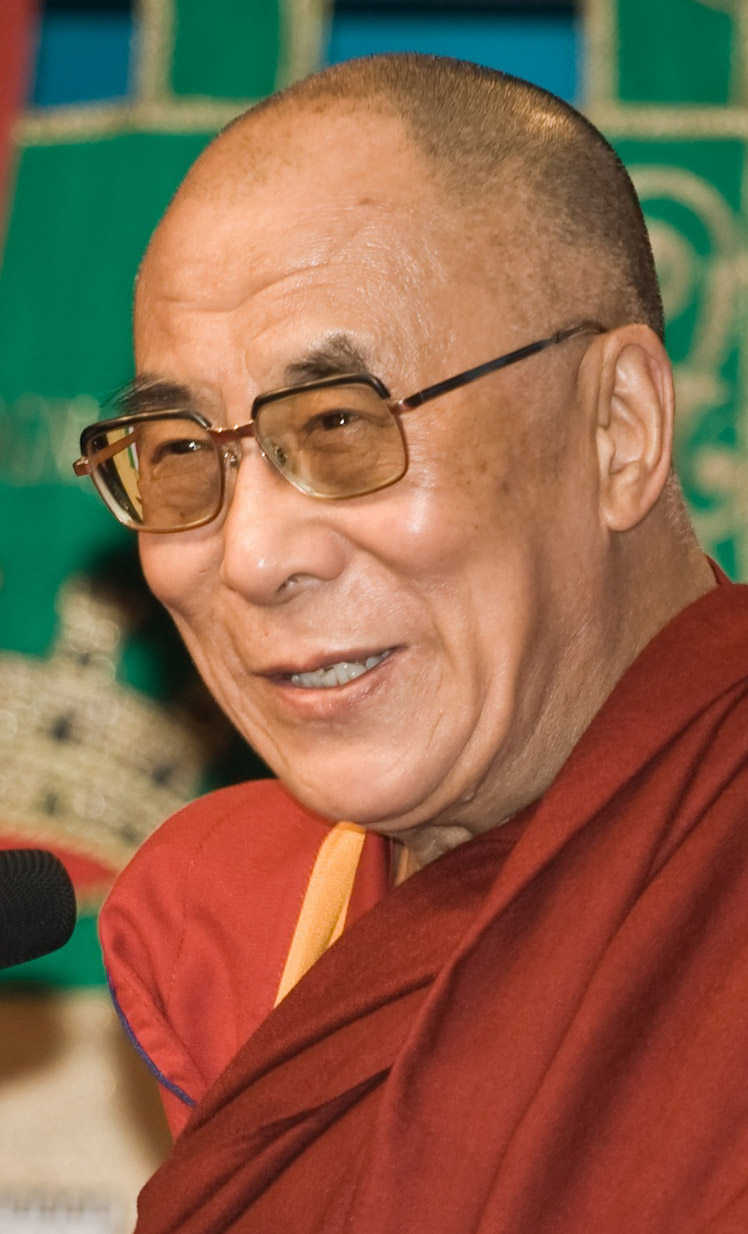|
Priests
A priest is a religious leader authorized to perform the sacred rituals of a religion, especially as a mediatory agent between humans and one or more deities. They also have the authority or power to administer religious rites; in particular, rites of sacrifice to, and propitiation of, a deity or deities. Their office or position is the 'priesthood', a term which also may apply to such persons collectively. A priest may have the duty to hear confessions periodically, give marriage counseling, provide prenuptial counseling, give spiritual direction, teach catechism, or visit those confined indoors, such as the sick in hospitals and nursing homes. Description According to the trifunctional hypothesis of prehistoric Proto-Indo-European society, priests have existed since the earliest of times and in the simplest societies, most likely as a result of agricultural surplus and consequent social stratification. The necessity to read sacred texts and keep temple or church reco ... [...More Info...] [...Related Items...] OR: [Wikipedia] [Google] [Baidu] |
Minister (Christianity)
In Christianity, a minister is a person authorised by a church or other religious organization to perform functions such as teaching of beliefs; leading services such as weddings, baptisms or funerals; or otherwise providing spiritual guidance to the community. The term is taken from Latin ''minister'' ("servant", "attendant"). In some church traditions the term is usually used for people who have ordained, but in other traditions it can also be used for non-ordained people who have a pastoral or liturgical ministry. In Catholic, Orthodox (Eastern Orthodox, Eastern and Oriental Orthodox, Oriental), Anglican and Lutheran churches, the concept of a priesthood is emphasized. In other denominations such as Baptist, Methodist and Calvinist churches (Congregationalist and Presbyterian), the term "minister" usually refers to a member of the ordination, ordained clergy who leads a congregation or participates in a role in a parachurch ministry; such a person may serve as an Elder ( ... [...More Info...] [...Related Items...] OR: [Wikipedia] [Google] [Baidu] |
Religious Leader
Clergy are formal leaders within established religions. Their roles and functions vary in different religious traditions, but usually involve presiding over specific rituals and teaching their religion's doctrines and practices. Some of the terms used for individual clergy are clergyman, clergywoman, clergyperson, churchman, and cleric, while clerk in holy orders has a long history but is rarely used. In Christianity, the specific names and roles of the clergy vary by denomination and there is a wide range of formal and informal clergy positions, including deacons, elders, priests, bishops, preachers, pastors, presbyters, ministers, and the pope. In Islam, a religious leader is often known formally or informally as an imam, caliph, qadi, mufti, mullah, muezzin, or ayatollah. In the Jewish tradition, a religious leader is often a rabbi (teacher) or hazzan (cantor). Etymology The word ''cleric'' comes from the ecclesiastical Latin ''Clericus'', for those belongi ... [...More Info...] [...Related Items...] OR: [Wikipedia] [Google] [Baidu] |
Clergy
Clergy are formal leaders within established religions. Their roles and functions vary in different religious traditions, but usually involve presiding over specific rituals and teaching their religion's doctrines and practices. Some of the terms used for individual clergy are clergyman, clergywoman, clergyperson, churchman, and cleric, while clerk in holy orders has a long history but is rarely used. In Christianity, the specific names and roles of the clergy vary by denomination and there is a wide range of formal and informal clergy positions, including deacons, elders, priests, bishops, preachers, pastors, presbyters, ministers, and the pope. In Islam, a religious leader is often known formally or informally as an imam, caliph, qadi, mufti, mullah, muezzin, or ayatollah. In the Jewish tradition, a religious leader is often a rabbi (teacher) or hazzan (cantor). Etymology The word ''cleric'' comes from the ecclesiastical Latin ''Clericus'', for thos ... [...More Info...] [...Related Items...] OR: [Wikipedia] [Google] [Baidu] |
Anglicanism
Anglicanism is a Western Christian tradition that has developed from the practices, liturgy, and identity of the Church of England following the English Reformation, in the context of the Protestant Reformation in Europe. It is one of the largest branches of Christianity, with around 110 million adherents worldwide . Adherents of Anglicanism are called ''Anglicans''; they are also called ''Episcopalians'' in some countries. The majority of Anglicans are members of national or regional ecclesiastical provinces of the international Anglican Communion, which forms the third-largest Christian communion in the world, after the Roman Catholic Church and the Eastern Orthodox Church. These provinces are in full communion with the See of Canterbury and thus with the Archbishop of Canterbury, whom the communion refers to as its ''primus inter pares'' (Latin, 'first among equals'). The Archbishop calls the decennial Lambeth Conference, chairs the meeting of primates, and is th ... [...More Info...] [...Related Items...] OR: [Wikipedia] [Google] [Baidu] |
Ritual
A ritual is a sequence of activities involving gestures, words, actions, or objects, performed according to a set sequence. Rituals may be prescribed by the traditions of a community, including a religious community. Rituals are characterized, but not defined, by formalism, traditionalism, invariance, rule-governance, sacral symbolism, and performance. Rituals are a feature of all known human societies. They include not only the worship rites and sacraments of organized religions and cults, but also rites of passage, atonement and ritual purification, purification rites, oaths of allegiance, dedication ceremonies, coronations and presidential inaugurations, marriages, funerals and more. Even common actions like handshake, hand-shaking and saying "hello" may be termed as ''rituals''. The field of ritual studies has seen a number of conflicting definitions of the term. One given by Kyriakidis is that a ritual is an outsider's or "Emic and etic, etic" category for a set activity (o ... [...More Info...] [...Related Items...] OR: [Wikipedia] [Google] [Baidu] |
Catholic Church
The Catholic Church, also known as the Roman Catholic Church, is the largest Christian church, with 1.3 billion baptized Catholics worldwide . It is among the world's oldest and largest international institutions, and has played a prominent role in the history and development of Western civilization. O'Collins, p. v (preface). The church consists of 24 ''sui iuris'' churches, including the Latin Church and 23 Eastern Catholic Churches, which comprise almost 3,500 dioceses and eparchies located around the world. The pope, who is the bishop of Rome, is the chief pastor of the church. The bishopric of Rome, known as the Holy See, is the central governing authority of the church. The administrative body of the Holy See, the Roman Curia, has its principal offices in Vatican City, a small enclave of the Italian city of Rome, of which the pope is head of state. The core beliefs of Catholicism are found in the Nicene Creed. The Catholic Church teaches that it ... [...More Info...] [...Related Items...] OR: [Wikipedia] [Google] [Baidu] |
Shinto
Shinto () is a religion from Japan. Classified as an East Asian religion by scholars of religion, its practitioners often regard it as Japan's indigenous religion and as a nature religion. Scholars sometimes call its practitioners ''Shintoists'', although adherents rarely use that term themselves. There is no central authority in control of Shinto, with much diversity of belief and practice evident among practitioners. A polytheistic and animistic religion, Shinto revolves around supernatural entities called the . The are believed to inhabit all things, including forces of nature and prominent landscape locations. The are worshiped at household shrines, family shrines, and ''jinja'' public shrines. The latter are staffed by priests, known as , who oversee offerings of food and drink to the specific enshrined at that location. This is done to cultivate harmony between humans and and to solicit the latter's blessing. Other common rituals include the dances, rites of pa ... [...More Info...] [...Related Items...] OR: [Wikipedia] [Google] [Baidu] |
Pastor
A pastor (abbreviated as "Pr" or "Ptr" , or "Ps" ) is the leader of a Christian congregation who also gives advice and counsel to people from the community or congregation. In Lutheranism, Catholicism, Eastern Orthodoxy, Oriental Orthodoxy and Anglicanism, pastors are always ordained. In Methodism, pastors may be either licensed or ordained. Pastors are to act like shepherds by caring for the flock, and this care includes teaching. The New Testament typically uses the words "bishops" ( Acts 20:28) and "presbyter" ( 1 Peter 5:1) to indicate the ordained leadership in early Christianity. Likewise, Peter instructs these particular servants to "act like shepherds" as they "oversee" the flock of God ( 1 Peter 5:2). The words "bishop" and "presbyter" were sometimes used in an interchangeable way, such as in Titus 1:5-6. However, there is ongoing dispute between branches of Christianity over whether there are two ordained classes (presbyters and deacons) or three (bishops, priests ... [...More Info...] [...Related Items...] OR: [Wikipedia] [Google] [Baidu] |
Christianity
Christianity is an Abrahamic monotheistic religion based on the life and teachings of Jesus of Nazareth Jesus, likely from he, יֵשׁוּעַ, translit=Yēšūaʿ, label=Hebrew/Aramaic ( AD 30 or 33), also referred to as Jesus Christ or Jesus of Nazareth (among other names and titles), was a first-century Jewish preacher and religious .... It is the Major religious groups, world's largest and most widespread religion with roughly 2.38 billion followers representing one-third of the global population. Its adherents, known as Christians, are estimated to make up a majority of the population in Christianity by country, 157 countries and territories, and believe that Jesus in Christianity, Jesus is the Son of God (Christianity), Son of God, whose coming as the Messiah#Christianity, messiah was Old Testament messianic prophecies quoted in the New Testament, prophesied in the Hebrew Bible (called the Old Testament in Christianity) and chronicled in the New Testamen ... [...More Info...] [...Related Items...] OR: [Wikipedia] [Google] [Baidu] |
Hinduism
Hinduism () is an Indian religion or ''dharma'', a religious and universal order or way of life by which followers abide. As a religion, it is the world's third-largest, with over 1.2–1.35 billion followers, or 15–16% of the global population, known as Hindus. The word ''Hindu'' is an exonym, and while Hinduism has been called the oldest religion in the world, many practitioners refer to their religion as '' Sanātana Dharma'' ( sa, सनातन धर्म, lit='the Eternal Dharma'), a modern usage, which refers to the idea that its origins lie beyond human history, as revealed in the Hindu texts. Another endonym is ''Vaidika dharma'', the dharma related to the Vedas. Hinduism is a diverse system of thought marked by a range of philosophies and shared concepts, rituals, cosmological systems, pilgrimage sites, and shared textual sources that discuss theology, metaphysics, mythology, Vedic yajna, yoga, agamic rituals, and temple building, among other topi ... [...More Info...] [...Related Items...] OR: [Wikipedia] [Google] [Baidu] |






.jpg)

.jpg)
